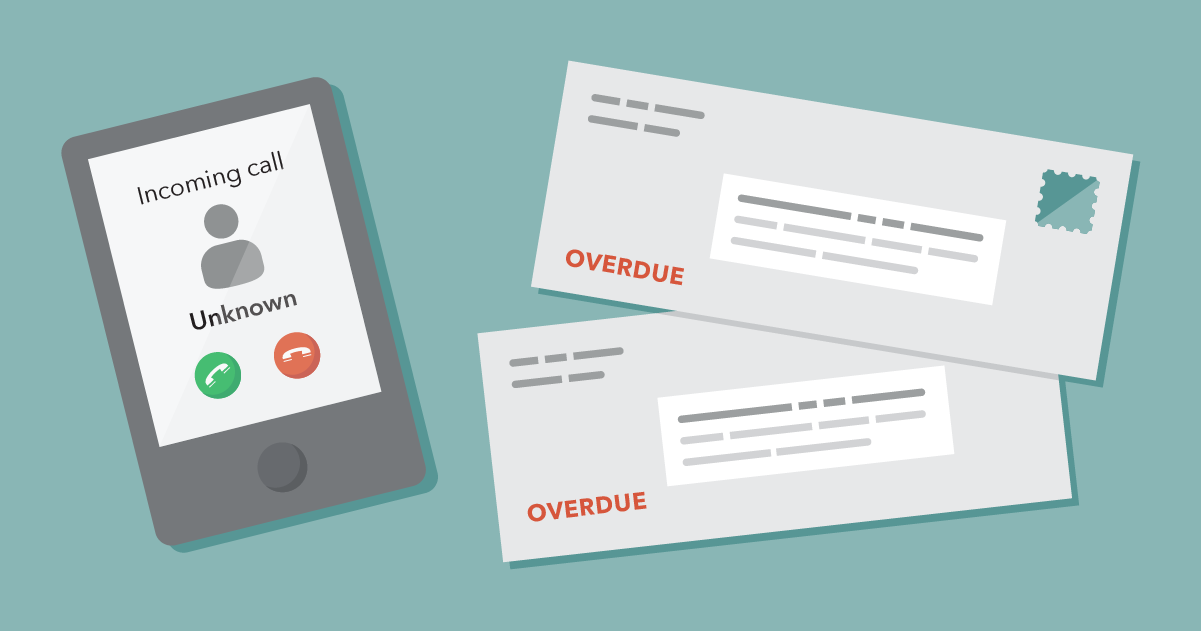
100+ Years of Combined Tax Resolution Experience.
100+ Years of Combined Tax Resolution Experience.
Nobody likes paying taxes, but just like eating our veggies, it’s a necessity and something we all grow used to in time. While the regular ins and outs of tax season may be somewhat stressful, an unexpected letter from the IRS can be panic-inducing. Fortunately, there’s no need to panic! The vast majority of IRS notices are easily resolved with a quick response and, as always, we’re here to help. Here are a few tips for the next time you receive that unexpected envelope from your buddies at the IRS.
Read Carefully
First, take a deep breath. Not every notice from the IRS is cause for concern. In fact, most IRS notices are about federal tax returns or tax accounts. Your notice will likely be about changes to your account, taxes you owe, or a payment request. In some cases, the notice may ask you for more information about a specific issue.
To make things easier, each notice comes with its own specific set of instructions. Be sure to read these instructions carefully for info on exactly what you need to do.
If your notice mentions a change or correction to your tax return, carefully review the information provided and compare it with your original return.
Always keep copies of notices with your tax records – you may need them down the line!
What if I Disagree with the IRS?
If you agree with the statements or changes reported in the notice, there’s no need to respond unless the letter gives you other instructions or you need to make a payment. If you disagree with the notice, however, then it’s time to respond.
To craft your response, simply:
- Write a letter that explains why you disagree.
- Include information and documents that back up reasons for disagreement.
- Mail your response with the contact stub from the bottom of your notice to the address on the contact stub.
- Allow 30(+/-) days for a response.
In most cases, you won’t need to call or visit a walk-in center.
For more information, check out “Responding to a Notice” on the IRS website, or take a look at Publication 594, the IRS Collection Process.
Watch Out for Tax Scams
Remember that the IRS will always send letters and notices by mail. They will never try to contact you via email or social media to ask for personal or financial information. If something seems fishy, it probably is.
Making Payments
If you need to make a payment to the IRS, simply visit IRS.gov/payments or use the IRS2GO app to make a payment with Direct Pay for free, or by debit or credit card.
We hope these tips have you feeling a bit calmer when it comes to those pesky IRS notices. For extra advice, be sure to check out the IRS’s helpful Youtube video about IRS notices. And if you’re still feeling lost, remember, we’re here to help! Call us at 844-841-9857 or fill out our form for a free consultation to see how we can be of service.
Learn More About IRS Account Investigation
Additional Readings

The IRS’s Criminal Investigation Division is looking to pursue more cases in the coming years, especially those dealing with cryptocurrencies. The division identified $1.8 billion in tax fraud in 2019 alone, according to the annual report. If you own a business, you should be aware of how tax investigations could impact your operations and how to...

Nobody likes paying taxes, but just like eating our veggies, it’s a necessity and something we all grow used to in time. While the regular ins and outs of tax season may be somewhat stressful, an unexpected letter from the IRS can be panic-inducing. Fortunately, there’s no need to panic! The vast majority of IRS...

The IRS established its Private Debt Collection program in 2016 after Congress passed a federal law that requires the IRS to contract with Private Collection Agencies, or PCAs. The agencies are hired to assist the IRS in collection action with certain outstanding, inactive tax debts on the government’s behalf. Read on to learn more about...

With the value of Bitcoin passing $20,000 in 2020, the interest in cryptocurrency is at an all-time high. As cryptocurrencies continue to gain popularity among investors, the IRS has needed to rework how it regulates the virtual market. To assist the IRS with this monumental task, the U.S. Department of Justice (DOJ) released a detailed Cryptocurrency Enforcement...

Many people discard IRS notices and letters because they do not know what to do with them or hope the problem disappears. However, failing to respond to the notices can result in penalties and other adverse implications. The IRS sends these letters for a reason, and you must take them seriously. This guide discusses the...

We’re in an era in which more small businesses are launching like wildfire. Many people find starting a small business of their own as easy as a piece of cake. However, most of the time, what they fail to prioritize are some of the major players involved in smoothly operating their small business. A...